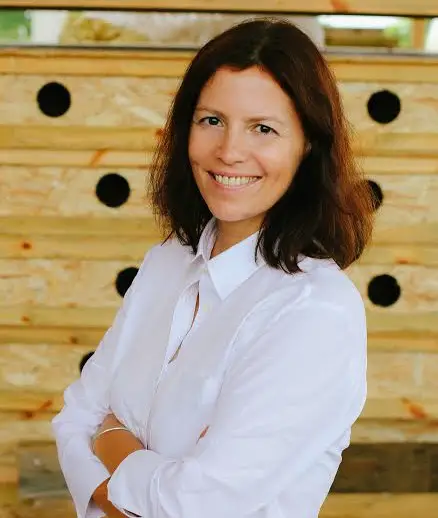Volks.house started their operational business early in 2017 and built the first prefabricated timber frame factory in Zanzibar, Tanzania in East Africa. Prefabrication means the production of all wall and roof elements including pre-installation of electro and plumbing set ups which occur in the factory under strict quality control procedures and ensure a premium product.
Construction Review had an exclusive interview with Saskia Just, Executive Director of Volks.house Ltd on prefabricated timber frame houses.
-
What’s your take on prefabricated timber frame housing?
For the production of the timber frame elements in the factory it takes 5 to 7 working days and the assembly of the prefabricated house is done within one day. Timber frame structures are watertight compared to conventional building materials which allow one to enter the building straight after erection to continue the interior works. This also improves the site productivity significantly.
The speed of construction reduces the entire building programming cost and due to the short construction time, high quality and ease of erection the houses are very cost efficient and at the end affordable for the clients.
One major aspect for Volks.house is the sustainability of timber as a building material. Timber contains less embodied energy than comparable building materials and is possibly the only truly renewable structural building material available today, thus making timber the leader in an industry that demands sustainable construction.
A timber frame house uses 85 % less building sand which shows as a worldwide bottleneck, especially in Zanzibar. The prefab technology is variable in design and building structure and this allows a huge flexibility to meet any demand in the affordable housing sector.
-
What are the positives achieved so far due to the implementation of prefabricated housing in your region?
We have successfully earned a tender to build Prefab Houses in Fumba Town, the first sustainable green housing project in Zanzibar. We are currently contracted to build 100 Prefab Houses for the project’s first phase and since there is a significant demand for these houses, we are expecting to have much more houses to build in the upcoming phase of the project. Volks.house has also ventured in doing projects for private hotels, as we were commissioned to build hotel bungalows and apartments in Zanzibar.
As we have seen the vast growth of our company and with the increasing number of satisfied customers we have an increasing demand for our modern affordable and eco-friendly prefab houses.
Our company is investing in both local craftsmen and contracting foreign expertise that specialize in large project constructions and efficient management to be able to adhere to different demands and inquiries of our customers. With introduction of our first housing units in Zanzibar, there is a high interest and demand from Real Estate developers who are looking into investing in sustainable and eco friendly housing unit at an affordable cost.
-
What are the challenges experienced so far?
Volks.house is a young company and has implemented in a very short time a new technology to the housing market in Tanzania. For further investments in the factory expansion and in the machine outfit additional capital is needed. The limited access to financial resources e.g. construction loans and the shortage of financing decelerate the company’s development. An investment in a second or third production line would increase our production outcome per year with the effect of boosting the affordable housing market.
-
What can be done to address these challenges?
For financial access, the banks are the right contacts to establish a better and easier accessible loan system but also for the house owners an improvement on the mortgages is required.
Free economic zones in Zanzibar have been purposely established to attract foreign direct investment specifically, labor intensive projects and increase exports. We as a construction company benefit lesser and these incentive programs could be better and more specific to contractors who are implementing a new and improved technology.
Tax incentives for contractors e.g., for importation of raw materials, abolishment of double taxation between Zanzibar and the mainland should be implemented but also simplification on regulation for work and resident permits would also boost the market in low-cost building technologies.
-
Do we have any emerging technologies that might shape the future of affordable housing in Africa?
Yes, the prefabrication of timber frame houses
